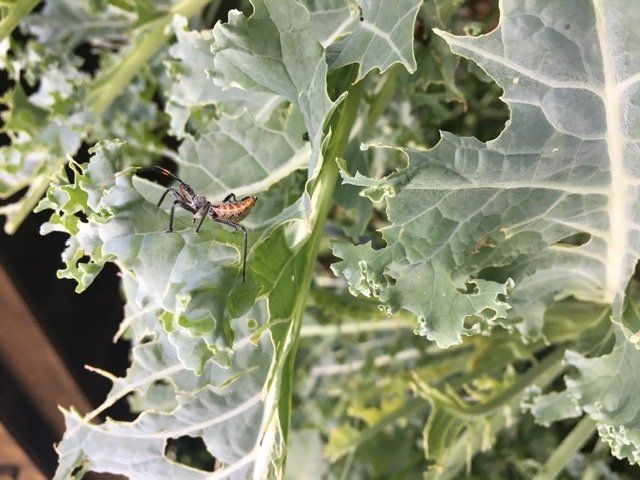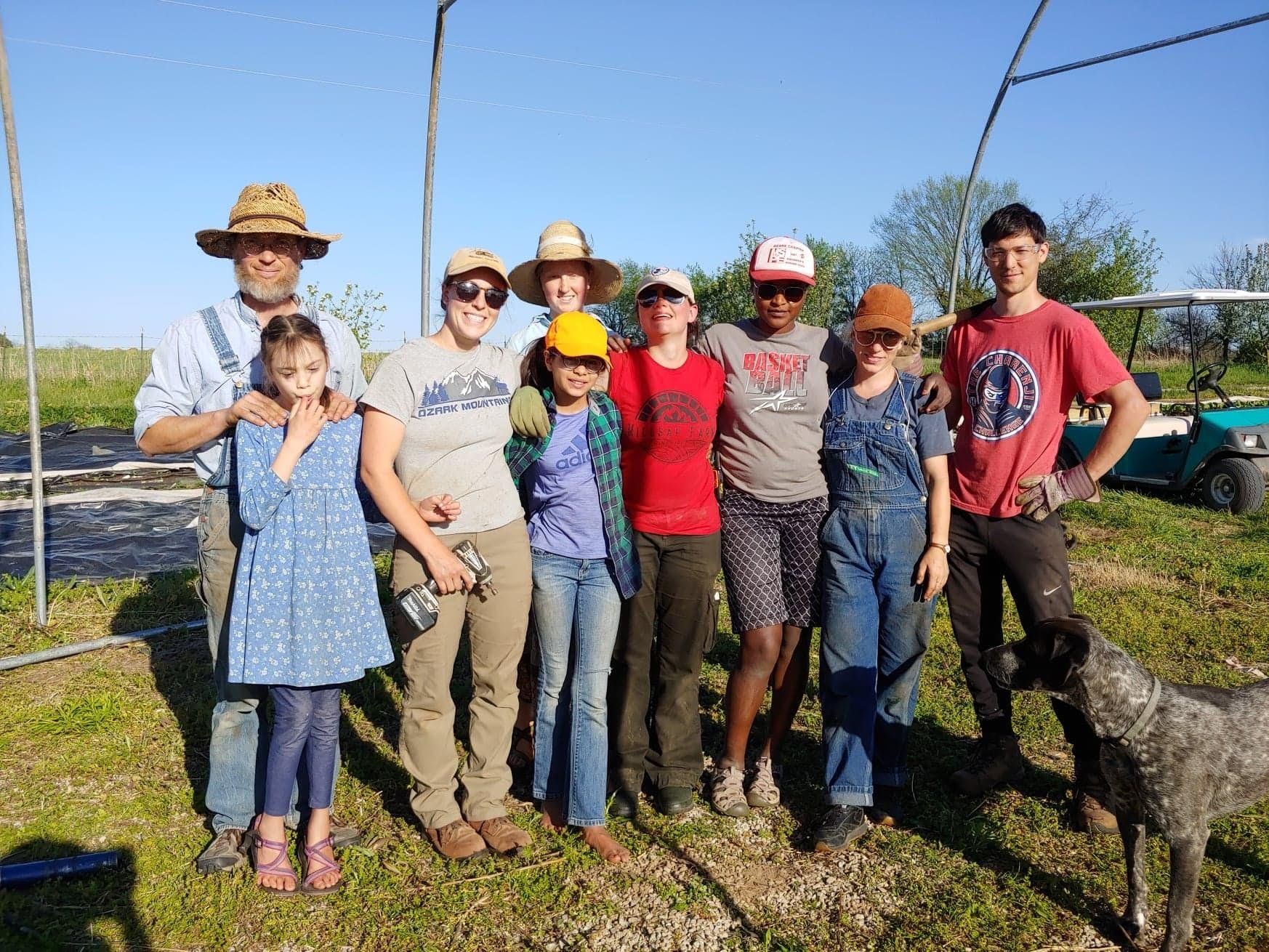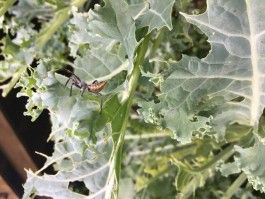What do you do about bugs? This is always the big question when we explain that our vegetable farm uses organic practices, and the answer is complicated. Organic agriculture on our farm focuses on creating a diverse and healthy ecosystem, which encourages balance. This means that our fields are a patchwork of different crops (over 45 different crops, with 200+ varieties) to confuse pests, while some areas of our farm are left uncultivated and un-mown to encourage bumble bees, beetles, and other beneficial insects. The numerous trees and bushes all over the farm supply perches and homes for flocks of songbirds and swallows, who eat insects as they patrol our fields, and our mulch beds are prime habitat for frogs and toads (and even the occasional small snake), who consume thousands of insects a year. All this diversity helps our farm stay balanced, with predators eating pests, pests having alternative hosts other than our crops, and all of them changing with the seasons. Of course, sometimes this is still not enough, and we have to employ other measures. For example, one thing we use to exclude pests from our crops is floating row cover, which is like an extremely fine netting. Row cover helps us get our squash to maturity without it being destroyed by squash bugs and cucumber beetles. You will notice that this may be the last week until October that we’ll have kale; that’s because usually we get rid of all the brassica family vegetables in the month of July to deprive their pests of an easy dinner, and to diminish their numbers. Other times, we need to apply organic sprays, such as pyganic, which is an extract from a chrysanthemum, and is effective against aphids. All in all, the answer to the pest problem is complicated, and requires a thorough understanding of the ecosystem we are operating in, along with the lifecycle of our crops, the pests, their predators, and potential remedies ( for example, the wheel bug in the photo above is one of our allies!). Of course, the results are rarely perfect, which is why you will see some holes in the kale, and will probably have a few corn ear worms in your sweet corn in a couple of months. But you can be sure that our produce was raised with organic practices, and that we are diligently working each season to get better at pest management.
Thanks for supporting our efforts be be good stewards of the land.
Curtis and the crew.




